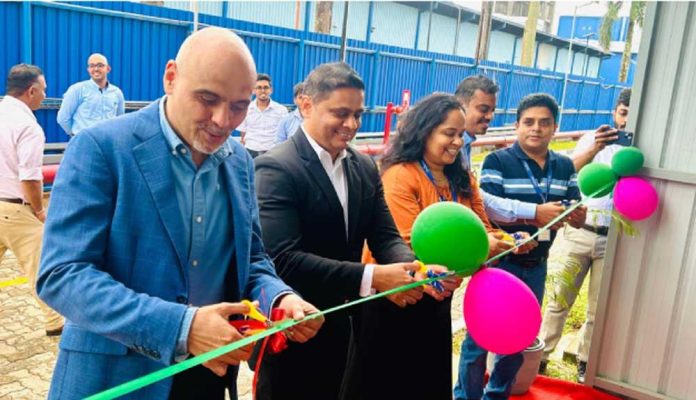Unilever Sri Lanka has unveiled a state-of-the-art rooftop solar power system at its food factory and distribution center in Sapugaskanda.
The project represents another step towards Unilever’s goal of converting to 100% renewable energy sources across its sites globally.
The project will integrate 1,672 solar panels across the two facilities, generating a total of 970kW, supported by an 810Kva inverter. The system is expected to generate 1.25 million kilowatts of electricity annually, meeting 33 percent of the facility’s energy needs. With this latest installation, Unilever Sri Lanka’s total solar capacity, including the Horana factory, has increased to 4 megawatts, further supporting the country’s goal of generating 75 percent of its electricity from renewable sources by 2050.
Speaking at the event, Mr. Damith Abeyratne, Director, Supply Chain, Unilever Sri Lanka, said, “Sustainability is a priority at Unilever Sri Lanka. Our recent solar installations at Sapugaskanda are an important step in our efforts to reduce our impact on the environment and support the country’s renewable energy goals. This project serves as a reminder of the important role of the private sector in contributing to building a sustainable future for Sri Lanka.”
Unilever has a scientifically validated target to reduce its absolute Scope 1 and 2 greenhouse gas (GHG) emissions by 100 percent by 2030, compared to a 2015 baseline. Achieving net-zero emissions across its value chain by 2039 is one of Unilever’s long-term ambitions. With a focus on practical steps, sooner rather than later, the company has created a comprehensive, globally applicable Climate Transition Action Plan (CTAP) that will guide its actions to reduce greenhouse gas emissions in the coming years.





